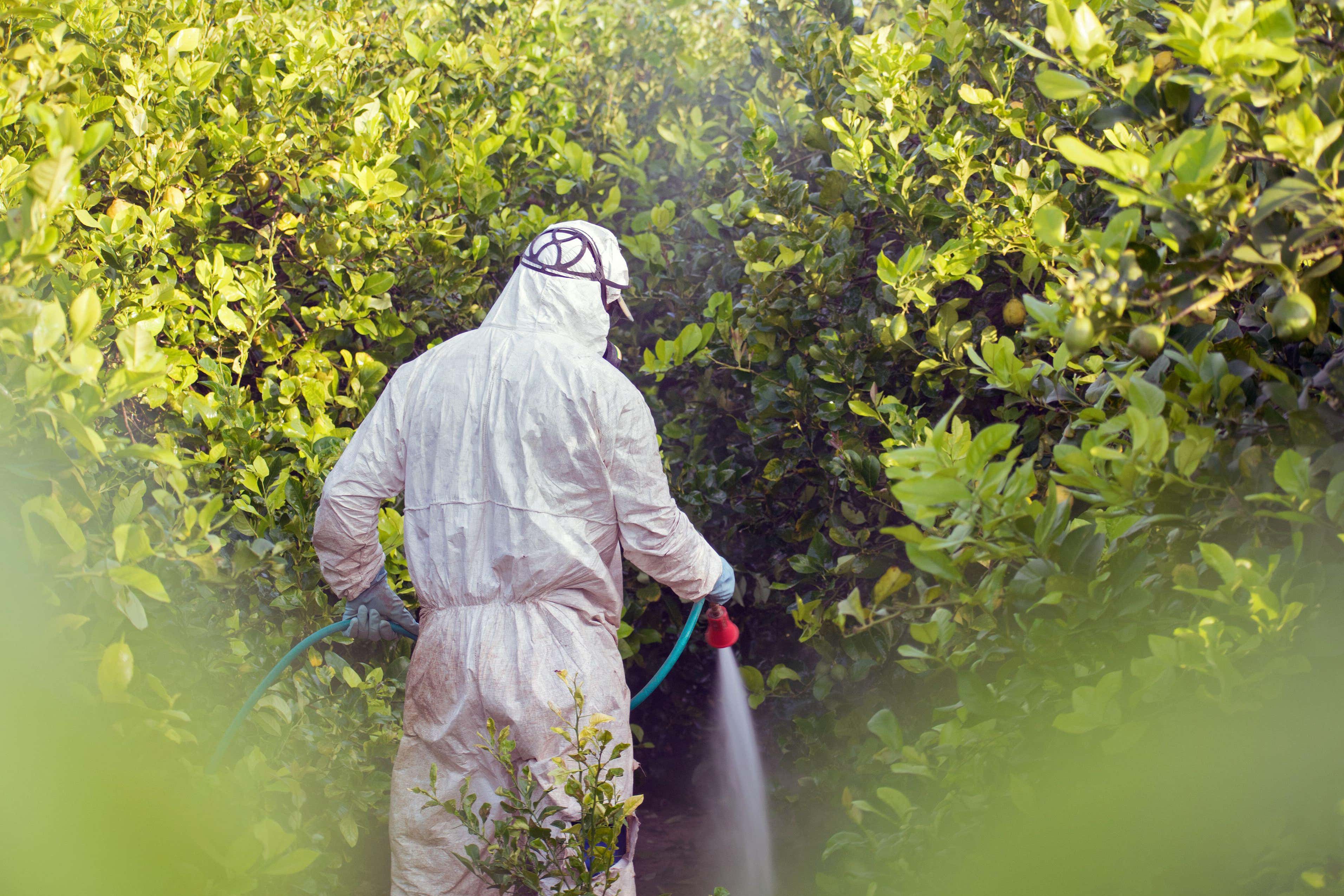Greenhouse gas emissions of pesticides overlooked, say campaigners
Incorporating a pesticide reduction plan into climate action would help nature recover and reduce greenhouse gas emissions, according to Pan UK.

Pesticides are a significant but overlooked source of greenhouse gases and should be included in climate solutions, campaigners said.
Use of chemicals to ward off bugs and disease increased by 16.7% across the world between 2005 and 2020, according to Pesticide Action Network UK (Pan UK).
The group has published a report in which it says there is a “vicious cycle” between pesticide use and climate change, with each causing more of the other.
They said 99% of all synthetic chemicals, which includes pesticides, are derived from fossil fuels, with several oil companies such as Exxon, Shell and Chevron involved in their production.
Manufacturing, packaging, transporting and applying chemicals all produce greenhouse gas emissions and exacerbate climate change, as does the environmental degradation they cause, Pan UK said.
At the same time, hotter temperatures encourage the use of more pesticides by allowing for the spread of insects and plant diseases, creating a “vicious cycle”.
Pan UK said the greater use of pesticides will disproportionately affect wildlife populations already under stress from climate effects such as higher summer temperatures and milder, wetter winters, and that organisms will become more resistant to the chemicals, further increasing pesticide applications.
They want the Government to incorporate the reduction of pesticides in their climate plans, introduce ambitious reduction targets, support farmers in using alternative methods to protect crops and implement a ban on pesticides in urban areas.
Josie Cohen, head of policy and campaigns at Pan UK, said: “The Government urgently needs to take a joined-up approach to tackling the climate and nature crisis, as they go hand in hand. The solutions to these emergencies must not undermine each other.
“The UK’s net-zero target cannot be achieved without transforming agriculture, including a major reduction in pesticide use, which will also bring huge benefits to nature and biodiversity.”
The National Farmers’ Union (NFU) has said farmers only use pesticides when they have to and that without them yields would fall, prices for consumers would rise and there would need to be twice as much land used to grow the same amount of food.
Pan UK called the idea of using pesticides for ensuring food security a “myth” and said they actually weaken food security through their contribution to climate change.
Reducing the use of pesticides would be at least a double win in addressing nature decline and the climate crisis
They named one herbicide, glyphosate, which has been involved in a number of legal cases in the United States because of its suspected impact on health, as having a carbon footprint of 31.29kg of CO2e for each kilogram manufactured.
Globally, the amount of glyphosate used in 2014 was equal to fuelling 6.25 million cars for one year, the group claimed, and that use of glyphosate in the UK is rising.
Using figures published by the UK Government, Pan UK said glyphosate use has increased by 16% in the four years up to 2020, which generated 81,410 tonnes of CO2e – equivalent to more than 75,000 flights from London to Sydney.
Other pesticides are themselves greenhouse gases, such as sulfuryl fluoride, which is nearly 5,000 times more potent than carbon dioxide, the group said.
Dr Doug Parr, chief scientist and policy director at Greenpeace UK, said: “Public understanding of the role that fossil fuel companies have played in driving the climate emergency has increased hugely in the last few years, and now we know that we need to add the pesticide industry to the list of climate polluters.
“Reducing the use of pesticides would be at least a double win in addressing nature decline and the climate crisis.”
Subscribe to Independent Premium to bookmark this article
Want to bookmark your favourite articles and stories to read or reference later? Start your Independent Premium subscription today.
